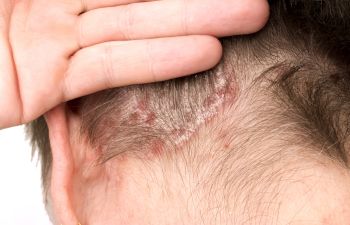Psoriasis is one of the most frustrating skin conditions. It is marked by itchy and scaly patches of skin. While there is not currently a cure for this systemic skin rash, many patients undergo a multi-faceted approach to find relief, including topical creams, oral medication and injections. Others may be able to manage their psoriasis by simply understanding and avoiding their triggers, which can include stress, weather, infection, alcohol, smoking and more.
How Does Psoriasis Develop?
Your skin contains layers of cells that are in constant change and turnover. For the average person, the skin completes a full process of removal of damaged cells and renewal with new cells in about a month’s time frame. For those with psoriasis, however, this skin cell turnover process simply goes too fast. The accelerated rate can be just 2-3 days, which means new skin cells pile up on top of old cells and creates an uncomfortable patch of skin.
Lights and Lasers May Offer Lasting Relief
Extensive research has supported the fact that UV rays can positively impact the symptoms of psoriasis. But don’t go running to the tanning bed just yet. It is important to understand that UVB light from a dermatologist is very different (and safer) than cancer-causing UVA light from a tanning bed.
At specific wavelengths of controlled UVB light, the production of T-cells in the skin can be slowed down. This allows the cellular turnover rate to be closer to normal, which reduces the development of psoriasis patches.
Call our Atlanta office today to schedule your appointment.


